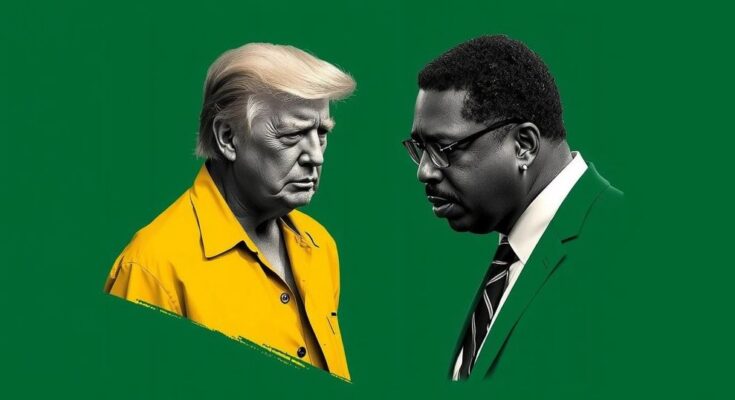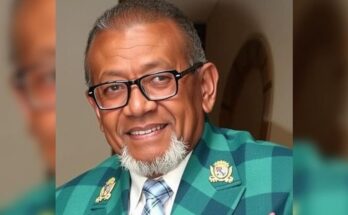Zimbabwe’s ruling party Zanu-PF is accused of influencing elections in neighboring countries, particularly in Botswana, Namibia, and Mozambique, leading to protests and concerns over democratic integrity. Zanu-PF’s actions include deploying campaign teams for allied parties and allegedly aiding diaspora voting, prompting allegations of interference from opposition groups. The response from Zimbabwean officials denies these claims, asserting their commitment to democratic processes.
Zimbabwe is facing accusations of meddling in the electoral processes of its neighboring countries, particularly as opposition parties in Botswana, Mozambique, and Namibia respond to the ruling party Zanu-PF’s involvement in their local elections. Zanu-PF, one of the few remaining liberation movements in power in Southern Africa, maintains that it is countering neo-colonial aspirations within the region. The party has reportedly dispatched campaign teams to support Mozambique’s ruling party, Frelimo, leading up to the contentious elections held on October 9, 2023. Frelimo facilitated campaign rallies in Zimbabwe, appealing to the diaspora vote, amidst claims that some Zanu-PF members participated in the voting through Mozambique’s diaspora system. In Botswana, Zanu-PF affiliates have campaigned alongside President Mokgweetsi Masisi’s Botswana Democratic Party (BDP) in anticipation of the October 30 elections. Moreover, protests in Namibia have emerged against a South African firm linked to Zimbabwe’s President Emmerson Mnangagwa, which was contracted to print ballot papers for the upcoming elections on November 27. Earlier this year, Zanu-PF convened a regional conference of liberation parties within the Southern African Development Community (SADC) to bolster their collective influence against perceived colonial threats. Reactions from various quarters echo concerns about Zimbabwe’s political interventions, with former Botswana President Ian Khama voicing anxieties over Zanu-PF’s strategies, alleging that the ruling party intends to manipulate elections through its influence. Opposition leader Job Sikhala has urged SADC to intercede against Zanu-PF activities, emphasizing the illegitimate interference in sovereign states. In response, Nick Mangwana, the Zimbabwean Government Spokesman, refuted the claims, asserting that Zimbabwe participates in regional elections only in accordance with SADC observer missions and fosters democratic governance without dictating outcomes. Previously, Zimbabwe had been accused of attempting to sway Zambian elections, reflecting a pattern of alleged external influence complicating regional politics. President Mnangagwa’s premature commendation of Frelimo’s election victory, prior to official results, has prompted further scrutiny, especially against a backdrop of protests from Mozambique’s opposition over alleged electoral manipulation. As current chair of SADC, Zimbabwe may find itself mediating the rising political tensions emanating from its involvement in regional electoral affairs, which some analysts interpret as a blatant disregard for electoral integrity.
The political landscape in Southern Africa is heavily influenced by the historical context of liberation movements, with Zimbabwe’s Zanu-PF being one of the last to hold power. This article sheds light on the evolving dynamics regarding Zimbabwe’s involvement in neighboring countries’ electoral processes. Critics argue that Zanu-PF’s support of allied parties in elections represents an encroachment upon the sovereignty of these nations, highlighting tensions that frequently arise in a region still grappling with the legacies of colonialism and persistent political strife. Opposition voices within countries such as Botswana, Namibia, and Mozambique are increasingly vocal in their opposition to Zimbabwe’s perceived interference, noting the implications that foreign influences could have on their democratic processes.
The allegations of electoral interference by Zimbabwe, particularly through the ruling Zanu-PF party, have sparked significant regional tensions, bringing to the forefront issues of state sovereignty and democratic integrity in Southern Africa. Opposition movements across the region express deep concern over the implications of Zimbabwe’s actions in their domestic elections, while Zimbabwean officials deflect such accusations by claiming adherence to supporting democratically elected governments. As these dynamics unfold, the role of the SADC, with Zimbabwe at its helm, will be critical in addressing these emerging challenges while restoring trust within the electoral processes of neighboring countries.
Original Source: www.theeastafrican.co.ke




